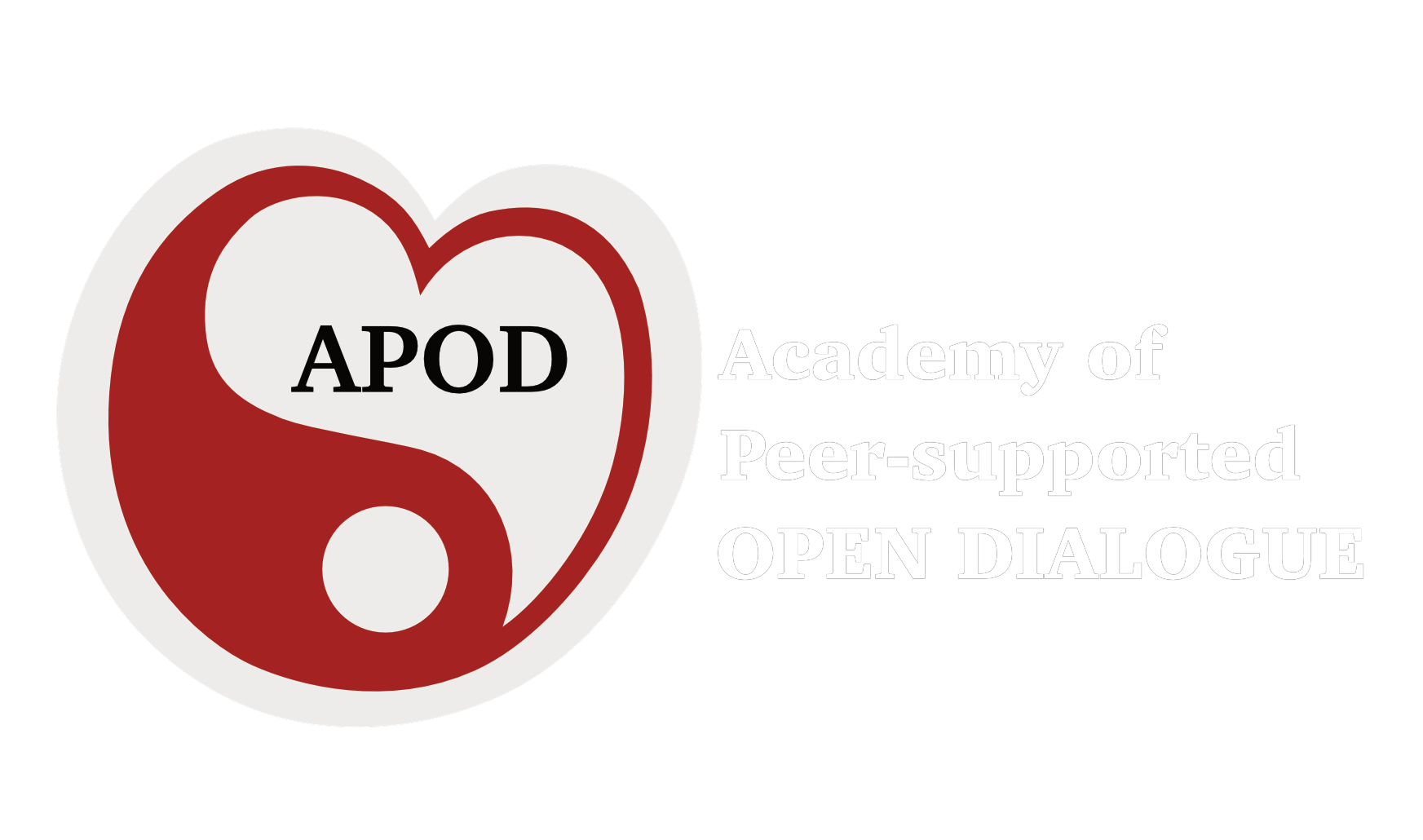Postgraduate Certificate in Peer-supported Open Dialogue, Systemic Practice and Relationship Skills
Postgraduate Certificate in Peer-supported Open Dialogue, Systemic Practice and Relationship Skills
Open Dialogue was originally developed in Finland in the 1980’s and has since been taken up in a number of countries around the world, including much of the rest of Scandinavia, Germany and some US states. It involves a psychologically consistent family and social network approach in which the majority of decision-making is carried out via whole system network meetings involving the patient together with his or her family members, as well as the extended social network. Staff are specifically trained in utilising these meetings as the focus of the therapeutic process, enabling a strong emphasis on improved agency and long term recovery from day one. To facilitate the development of the core skills, attitudes and values of Peer-supported Open Dialogue students will develop their own mindfulness/contemplative practice. A further core element of the model involves the inclusion of peer workers within each Trust and as part of a local network of community-based peers. Peer workers are seen as experts in their own right while many of the regular staff have lived experience as service users and/or carers. Staff and peer workers will receive peer support training jointly in order to develop local need-adapted and holistic models of crisis care and support which integrate peer-support with the Open Dialogue approach. Staff and peer workers will also collaborate to cultivate supportive peer networks within the local community.
The foundation course comprises four five-day residential modules over approximately ten months. The training course aims to create strong, authentic relationships between trainees. In order to support them through this sometimes emotive process we arrange for them to form small support groups. These groups are given time at the end of each study day to meet in private to reflect on what they have learned and what they have found challenging. Teaching staff are also available if requested by trainees. In addition to the work done at the residential modules, the participants will be required to hand-in a number of assignments specified below. This will be done in a net-based virtual learning environment. Participants should budget approximately six to eight hours per week for the readings and completing the assignments.
City St George’s, University of London; will after completion of the course, award a post-graduate certificate in ‘Peer-supported Open Dialogue, Social Network and Relationship Skills’. Accreditation at foundation diploma level from the Association of Family Therapists will applied for retrospectively.
On completion of this course, the participants will be aware of how to support the recovery process more effectively for persons experiencing mental illness, their families and the private and professional networks of which they are part. This foundation course is designed as an introduction and is a prerequisite to the mentors training course which is currently being planned. As an integral part of the foundation course, participants from the individual Trusts will work with implementing POD within their Trust. As part of this they will develop locally adapted models of POD within their respective services including descriptions of the practical governance aspects as well as a strategy for organising network support for peer-supporters within the community. This course promotes recognition of the need for establishing relationships that facilitate personal recovery and supports the development of the skills to form such relationships. Mindfulness or other contemplative practice is a core component of the training and all participants are required to establish a regular practice. The course is designed to be a reflection of the philosophy and values of this peer-supported, client-driven and person-centred approach and as such will be delivered by active clinicians, family members, clients and peers. A variety of learning activities will be used, e.g. lectures, self-reflection, writing exercises, net-based discussions, role play, mindfulness meditation, group project work, all of which support personal and professional growth and the development of a reflective practitioner who respects and values the contributions of others.
Thematic content:
Learning outcomes:
Formative assignments:
Deliver four web based (200 – 400 word) posts to the group
Final summative assessment:
Thematic content:
Learning outcomes:
Formative assignments:
Deliver four web based (200 – 400 word) posts to the group
Final summative assessment:
Thematic content:
Learning outcomes:
Formative assignments:
Deliver three web based (200 – 400 word) posts to the group
Deliver a 20-minute presentation based on the POD practice study.
Final summative assessment:

Copyright © 2024 APOD All Rights Reserved.
Details of our next conference will be published here as soon as they are confirmed – please check again later.